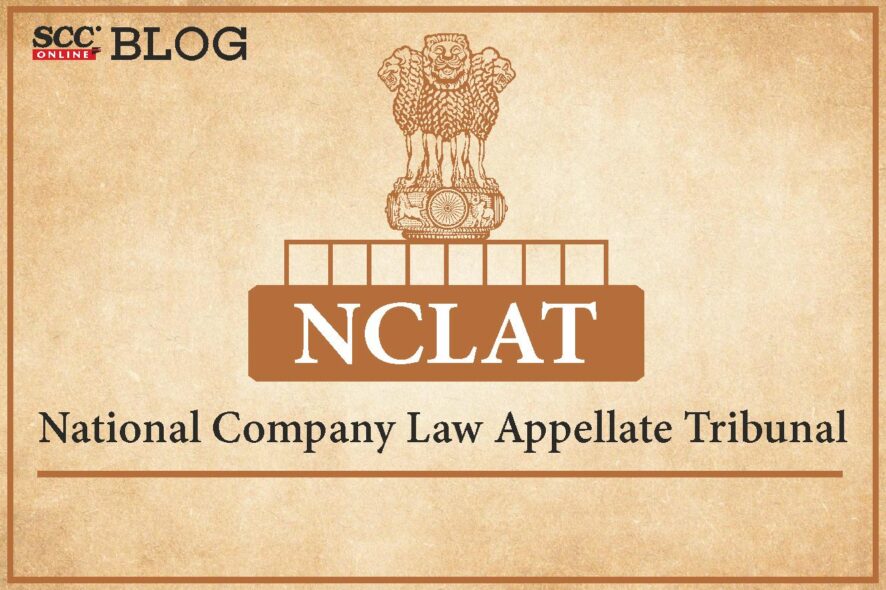National Company Law Appellate Tribunal : While deciding an issue as to whether the adjudicating authority is competent to pass an order under S. 66 of Insolvency and Bankruptcy Code, 2016 during the subsistence of moratorium under S. 14 of IBC, a 3-judge bench comprising of Ashok Bhushan, M. Satyanarayana Murthy*, JJ., and Barun Mitra (Technical Member), held that the moratorium issued under S. 14 of the IBC does not bar proceedings against the resolution professional for defrauding the creditors of its Corporate Debtor.
Factual Matrix
In the instant matter, the appellant, is a corporate insolvency resolution professional of HBN Homes Colonizers Ltd. And the respondent, is the Resolution Professional of HBN Foods Ltd. Both companies are undergoing Corporate Insolvency Resolution Process (CIRP).
The respondent preferred an application against the appellant before the NCLT under Ss. 66, 68, 69, 70 and other relevant provisions of the IBC. Due to lockdown on account of Covid-19 pandemic, the Appellant could not represent himself during the proceedings. The NCLT vide order dated 13-07-2021, forfeited the right of appellant to file reply to the said application. The NCLT vide order date 13-12-2021 held that the respondents (including the appellant herein) have misappropriated Rs. 2687.27 Lakhs and they are jointly and severally liable to make such a contribution to the assets of HBN Foods Limited. The NCLT further directed to institute criminal prosecution against the respondents under S. 69 of the IBC.
The appellant preferred an appeal before the NCLAT against the impugned order passed by the NCLT vide order dated 13-12-2021.
Moot Point
Whether the adjudicating authority is competent to pass order under S. 66 of IBC during subsistence of moratorium under S. 14 of IBC?
Arguments Advanced
The appellant contended that HBN Homes Colonizers Ltd. is undergoing CIRP and is under the protection of moratorium under S. 14 of the IBC. The appellant also contended that no proceeding could be initiated against HBN Homes Colonizers Ltd., therefore the impugned order passed by the NCLT vide order dated 13-12-2021 is ex-facie erroneous and bad in law.
The respondent contended that HBN Homes Colonizers Ltd. entered into fraudulent transactions which were against the interests of the creditors. The respondent contended that S. 14(1)(a) of the IBC in not applicable to facts of this case therefore the NCLT pass an appropriate order under S. 66 of the IBC. The respondent also contended that the impugned order passed by NCLT while exercising power under S. 60(5) of the IBC which provides for adjudication of issues pertaining to corporate debtor during the course of the CIRP or liquidation process, requires no interference.
Tribunal’s Observation
The Tribunal observed that the Appellant did not challenge the impugned order on merits but limited his contentions to the issue of legality of the order passed under S. 66 of the IBC against a company which is undergoing CIRP and that it is under the protection of moratorium envisaged under S. 14 of the IBC.
Negating the contention of the appellant that the prohibition under S. 14(1)(a) is applicable to Section 66 of IBC also, the Tribunal observed that both the provisions are independent, incorporated for different purposes and they have to be read independently to achieve the object of the enactment. The Tribunal stated that
“Section 14 of IBC is intended to prevent fictitious claims by 3rd parties to realise the amount by execution of the orders decrees etc. whereas Section 66 of IBC is intended to prevent fraudulent trading or business by corporate debtor through its corporate insolvency resolution professional or suspended directors, during insolvency resolution process or liquidation process.”
The Tribunal relied on M. Pentiah v. Veeramallappa Muddala, AIR 1961 SC 1107; CIT v. S. Teja Singh, AIR 1959 SC 352 and Corpn. of Calcutta v. Liberty Cinema, AIR 1965 SC 1107 and opined that the provisions should be construed harmoniously to give effect the legislation and must be interpreted in such a way to avoid inconsistency or repugnancy. The Tribunal observed that the both the provisions, Ss. 14(1)(a) and 66 of IBC should be harmoniously constructed to make the enactment effective and workable.
The Tribunal held that there is no inconsistency or repugnancy between the Ss. 14(1)(a) and 66 of IBC.
“Section 14 of IBC is a bar against institution and prosecution of any suits or proceedings or execution of orders and decrees in other courts or Tribunals but not a bar to pass appropriate order in the pending proceedings against the resolution professional or suspended directors and related parties, before the Adjudicating Authority, during the insolvency resolution process or liquidation process. On the other hand, Section 66 of IBC empowered the Tribunal to pass appropriate orders when the suspended directors or insolvency professional of the Corporate Debtor carried on fraudulent trading or business during resolution process.”
The Tribunal also observed that S. 60(5)(a) of IBC permits the NCLT to pass any order on any application or proceeding by or against the corporate debtor or corporate person notwithstanding anything to the contrary contained in any other law for the time being in force.
Dismissing the appeal, the tribunal held that the impugned order passed by the NCLT deserves no interference.
[Rakesh Kumar Jain v. Jagdish Singh Nain, 2022 SCC OnLine NCLAT 405, decided on 04-08-2022]
Advocates who appeared in this case :
Mr Mohit Nandwani, Advocate, Counsel for the Appellant;
Mr Abhishek Naik (for R-1) and Ms. Gulafsha Kureshi, Advocate, Counsel for the Respondents.
*Ritu Singh, Editorial Assistant has put this report together.






